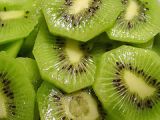Skin Vitamins For A Healthy Skin
Skin care products certainly help you look better from the outside, but it is what you put inside your body which is important when it comes to creating a perfect skin. Here’s what you need.

Vitamin A:
Not only is it a powerful antioxidant, but vitamin A also helps your skin produce keratin (a substance that strengthens skin cells, maximising their protective role) and proteins that help with cell regeneration. If you are lacking in it, your skin maybe drier and flakier than normal. You can get your daily dose from fruits and vegetables that are high in an ingredient called betacarotene, which your body turns into vitamin A. Beta-carotene is found in the highest quantities in orange fruits and vegetables like carrots, peaches, pumpkin and sweet potatoes.

Vitamin C:
Collagen is one of the most important substances in the structure of the skin – it is what keeps it firm and well toned. To feed collagen you need vitamin C. There are two reasons for this: first, the antioxidant action of vitamin C helps fight the free radicals that destroy collagen; and second, vitamin C also contains substances called flavonoids that are essential for replenishing collagen. Vitamin C can be found in many fruits and vegetables – one of the richest sources is kiwi fruit. One kiwi fruit contains the minimum recommended daily amount of vitamin C – pop four or five down in a day and you’ll be dramatically boosting your skin health. Other great sources are oranges, red peppers, blueberries and melon.

Iron:
Low iron levels in the body lead to reduced oxygen in the blood and this can be the cause of pale skin and pronounced dark circles under the eyes. In order to boost your iron levels you should include more lean red meat and plenty of dark green leafy vegetables in your diet.

Zinc:
Zinc is a mineral that is vital for healing the skin and it’s also been shown to reduce acne. You’ll find high levels of zinc in foods such as shellfish, hard crumbly cheeses, nuts and seeds.
Essential Fatty Acids:
Dry skin often occurs when women start on low-fat diets and the lack of essential fatty acids is the reason. One of the most frequent symptoms of a deficiency of fatty acids is dry, scaly skin. EFAs are commonly found in oily fish, nuts and seeds (which also contain high levels of another important skin nutrient: vitamin E).

Water:
Water not only keeps skin cells plump, but every rejuvenating process in the skin needs water to fuel it. Without enough water in your skin you’ll never recapture that healthy glow. Aim for at least eight glasses of water a day – but don’t guzzle them all at once. Your body can only hold so much water in one go – exceed that level and it will be flushed straight through the system. Aim for one glass an hour.
What You Don’t Need:
- Salty Foods: These dehydrate the skin and are high in iodine. Dermatologists believe that this can trigger acne.
- Caffeine: Every cup of coffee needs three cups of water to process it through the system – this is often drawn from the skin. Caffeine increases the level of stress hormones, which can lead to poor skin health.
- Hydrogenated Fats: Found in nearly all processed foods and margarines, these are believed to generate free radicals in the skin.